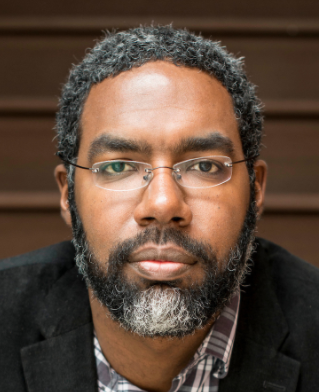
Elihu Katz Colloquium: Deen Freelon, Hussman School of Journalism and Media
- Virtual Event
"Analyzing social media from a user-eye view with PIEGraph"
Click Here to register for zoom webinar
About the Event
Quantitative social media research has traditionally been conducted from what might be called a platform-centric view, wherein researchers sample, collect, and analyzed data based on one or more topic- or user-specific keywords. Such studies have yielded many valuable insights, but they convey little about individual users’ tailored social media environments—what I call the user-eye view. Studies that investigate social media from a user-eye view tend to be rare because of the expense involved and a limited number of suitable tools. This talk introduces PIEGraph, a novel system for user-eye view research that offers key advantages over existing systems. PIEGraph is lightweight, scalable, open-source, OS-independent, and collects data viewable from mobile and desktop interfaces directly from APIs. The system incorporates an extensible tagging taxonomy that allows for straightforward classification of a wide range of political, social, and cultural phenomena. The presentation will focus on how our research team is using PIEGraph to examine users’ potential levels of exposure to high- and low-quality information sources across the ideological spectrum.
About the Speaker

Deen Freelon is an associate professor at the UNC Hussman School of Journalism and Media at the University of North Carolina and a principal researcher at the Center for Information, Technology, and Public Life (CITAP). His theoretical interests address how ordinary citizens use social media and other digital communication technologies for political purposes, paying particular attention to how identity characteristics (e.g. race, gender, ideology) influence these uses. Methodologically, he is interested in how computational research techniques can be used to answer some of the most fundamental questions of communication science. Freelon has worked at the forefront of political communication and computational social science for over a decade, coauthoring some of the first communication studies to apply computational methods to social media data.
Computer programming lies at the heart of his research practice, which generates novel tools (and sometimes methods) to answer questions existing approaches cannot address. He developed his first research tool, ReCal, as part of his master’s thesis, and it has since been used by tens of thousands of researchers worldwide. His scholarship has been financially supported by grantmakers including the U.S. Institute of Peace, the Spencer Foundation, the Knight Foundation, and the Hewlett Foundation; and published in top-tier journals including Nature, Science, and the Proceedings of the National Academy of Sciences. Freelon earned his Ph.D. from the University of Washington in 2012 and formerly taught at American University in Washington, D.C.
Members of the Annenberg community can pick up boxed lunches in Suite 200 prior to the event on a first come, first served basis.
Events
View AllDisclaimer: This event may be photographed and/or video recorded for archival, educational, and related promotional purposes. We also may share these video recordings through Annenberg's website or related platforms. Certain events may also be livestreamed. By attending or participating in this event, you are giving your consent to be photographed and/or video recorded and you are waiving any and all claims regarding the use of your image by the Annenberg School for Communication. The Annenberg School for Communication, at its discretion, may provide a copy of the photos/footage upon written request.
